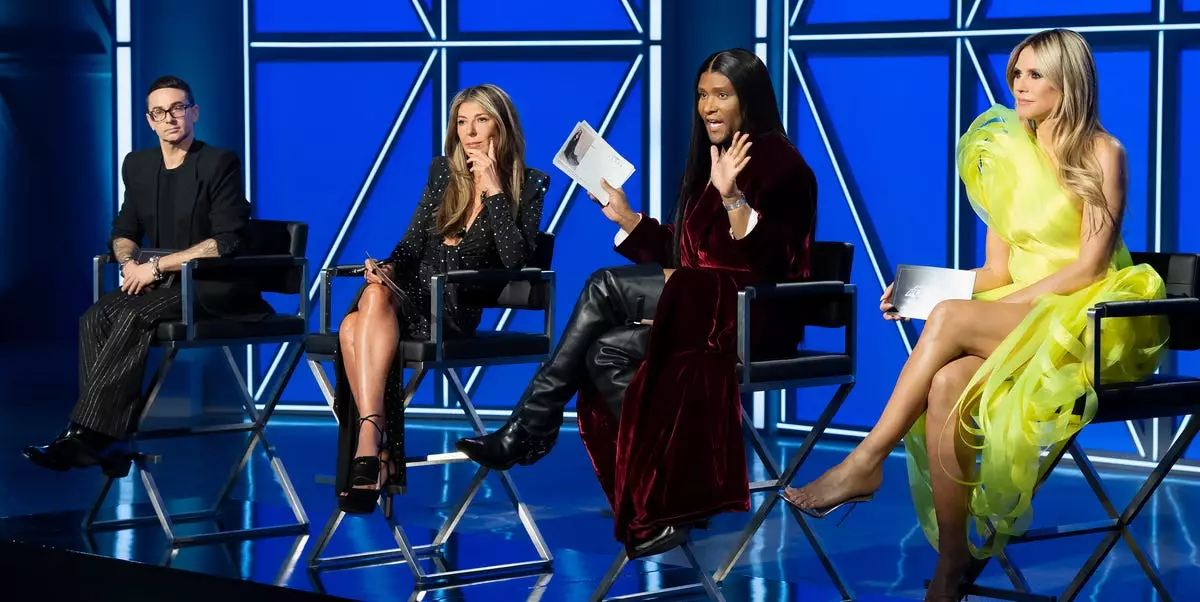After a hiatus, *Project Runway* makes a triumphant return, reaffirming its status as a premier stage for fashion innovation and cultural dialogue. The show’s 21st season isn’t just about runway competitions; it’s a celebration of how fashion mirrors societal evolution. With prominent figures like Nina Garcia, Law Roach, Heidi Klum, and Christian Siriano leading the charge, this season emerges as both a nostalgic callback and a progressive statement. It is evident that the series is more than mere entertainment; it’s a lens through which we examine our shared values, struggles, and aspirations.
This renewal is a testament to the enduring power of *Project Runway* to adapt and stay relevant. The show has historically been a mirror of its times—embracing diversity, encouraging boldness, and highlighting voices often left unheard. Season 21 continues this tradition, showcasing contestants with varied backgrounds, stories, and perspectives, many of whom are pushing boundaries and challenging conventional standards of fashion and identity.
Judges and Mentors: Guardians of Innovation and Cultural Consciousness
The star-studded judging panel is both a reflection of and a catalyst for the show’s evolution. Nina Garcia, with her unerring eye for style and her deep understanding of cultural shifts, remains a guiding force. Her reflection on the series acting as a societal mirror underscores a fundamental truth: fashion is inherently political and personal. Law Roach’s candid critiques and fearless fashion insights inject the show with a fresh, unfiltered energy that pushes contestants to think beyond aesthetics.
Christian Siriano’s mentorship is particularly notable in this season, not just because of his past as a winning designer but because of his outspoken advocacy for inclusivity and diversity. His praise for the talented trans designer on the show highlights a broader shift towards authentic representation. It’s a move that acknowledges the importance of visibility and the profound impact it has on both the fashion industry and society at large.
Heidi Klum’s return as host revitalizes the familiar energy that fans associate with the series. Her enthusiasm juxtaposed with Law Roach’s edgy commentary creates a dynamic balance—one rooted in legacy, the other in contemporary cultural conversation. Together, these figures establish a narrative that challenges contestants to be innovative, socially conscious, and true to themselves.
New Faces, Old Spirit: Diversity, Ambition, and Cultural Reflection
Season 21’s cast represents a microcosm of today’s multifaceted society. The inclusion of a transgender designer and twin brothers adds layers of complexity to the competition, illustrating how personal identity influences creative expression. This diversity is not just a superficial checkbox; it is integral to the storytelling, pushing the boundaries of what fashion can represent.
The contestants themselves display a remarkable mix of ambition and awareness. Young Gen Z designers demonstrate a savvy understanding of current trends, social issues, and digital culture, reflecting a generation that is both deeply connected and inherently rebellious. Meanwhile, seasoned designers bring experience and a nuanced perspective, creating a vibrant tapestry of creative energy that benefits the show’s narrative.
What sets this season apart is its genuine commitment to elevating voices that challenge stereotypes. The story of the trans designer, in particular, exemplifies how fashion can serve as an outlet for self-expression and societal change. Her talent and story resonate beyond the runway, illustrating the profound role fashion plays in personal and cultural identity formation.
The Future of Fashion and Reality TV Interwoven
*Project Runway*’s return isn’t merely about showcasing new fashion trends; it’s about shaping the future of both the industry and reality television. The series positions itself as a platform that elevates progressive conversations—exploring themes like inclusivity, mental health, and societal acceptance—under the guise of a competitive fashion show.
The show’s new format, comprising ten episodes starting with a two-part premiere, amplifies anticipation and allows for more in-depth storytelling. Its accessibility through multiple streaming platforms signals an understanding of where contemporary audiences consume content—discerning viewers who seek both entertainment and meaningful narratives.
Ultimately, Season 21 is more than a reboot; it’s a declaration that *Project Runway* remains a vital, evolving entity. It boldly champions creativity while acknowledging that fashion is an ever-changing reflection of societal values. It embraces diversity not as a trend but as a fundamental principle, setting a powerful precedent for the years to come.

